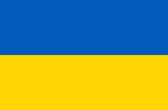
Call 0330 880 3600 Calls may be monitored or recorded. Opening Times.
- TRAVEL INSURANCE
- COVID-19 COVER
- More Options
- Help & Advice
- Existing Customers

Call 0330 880 3600 Calls may be monitored or recorded. Opening Times.

Need help?
UK Customer Services0330 880 3600*
Open Monday to Friday 9:00am to 6pm, Saturday 8:30am to 4pm and closed Sundays.
*Calls are recorded for training and quality purposes.

Official name: Ukraine
Capital city: Kyiv
Languages spoken: Ukrainian, Russian
Population: Around 37 million (though many displaced by conflict)
Currency: Ukrainian hryvnia (UAH)
Time zone: GMT+2
Driving side: Right
Climate: Cold winters, hot summers, and mild springs and autumns
Ukraine is a large and culturally rich country in Eastern Europe, known for its historic cities, Orthodox churches, and wide open plains. Before the war, it was becoming popular with travellers for Kyiv’s buzzing nightlife, Lviv’s old town charm, and the Carpathian Mountains for hiking.
At present, Russia’s invasion of Ukraine makes most travel unsafe. Airspace is closed, transport is disrupted, and attacks have affected major cities and infrastructure. Martial law is in place, and large parts of the country are considered dangerous for foreign visitors. Follow FCDO advice.
Ukraine is the second-largest country in Europe, bordered by Russia, Belarus, Poland, Slovakia, Hungary, Romania, and Moldova, with a Black Sea coastline to the south. The Carpathian Mountains run across the west, while the Dnipro River cuts through the centre of the country.
Under current conditions, regular tourism is not possible. Before the war, Kyiv Boryspil International Airport (KBP) was the main entry point, and trains linked Ukraine with neighbouring countries. Attractions included the UNESCO-listed city of Lviv, Odesa’s Black Sea beaches, and Chernobyl tours near Pripyat. Once peace returns, these highlights may again draw visitors.
UK nationals need a visa-free entry for short stays, but at present, entry is restricted and highly dangerous. The British Embassy in Kyiv has scaled-down operations due to security risks. Travellers should check the latest government advice before considering any trip.
The hryvnia (UAH) is the local currency. Banking services and ATMs may be disrupted in conflict zones, though card payments continue in safer areas. Cash is important in smaller towns and villages. Inflation has risen sharply since the war began.
Medical facilities are under pressure due to the ongoing conflict. Hospitals in affected areas face shortages of staff, medicine, and equipment. Travel insurance does not usually cover war zones, so coverage may be invalid if entering Ukraine during hostilities. Before the war, major cities like Kyiv and Lviv had good private healthcare, but services are now unreliable.